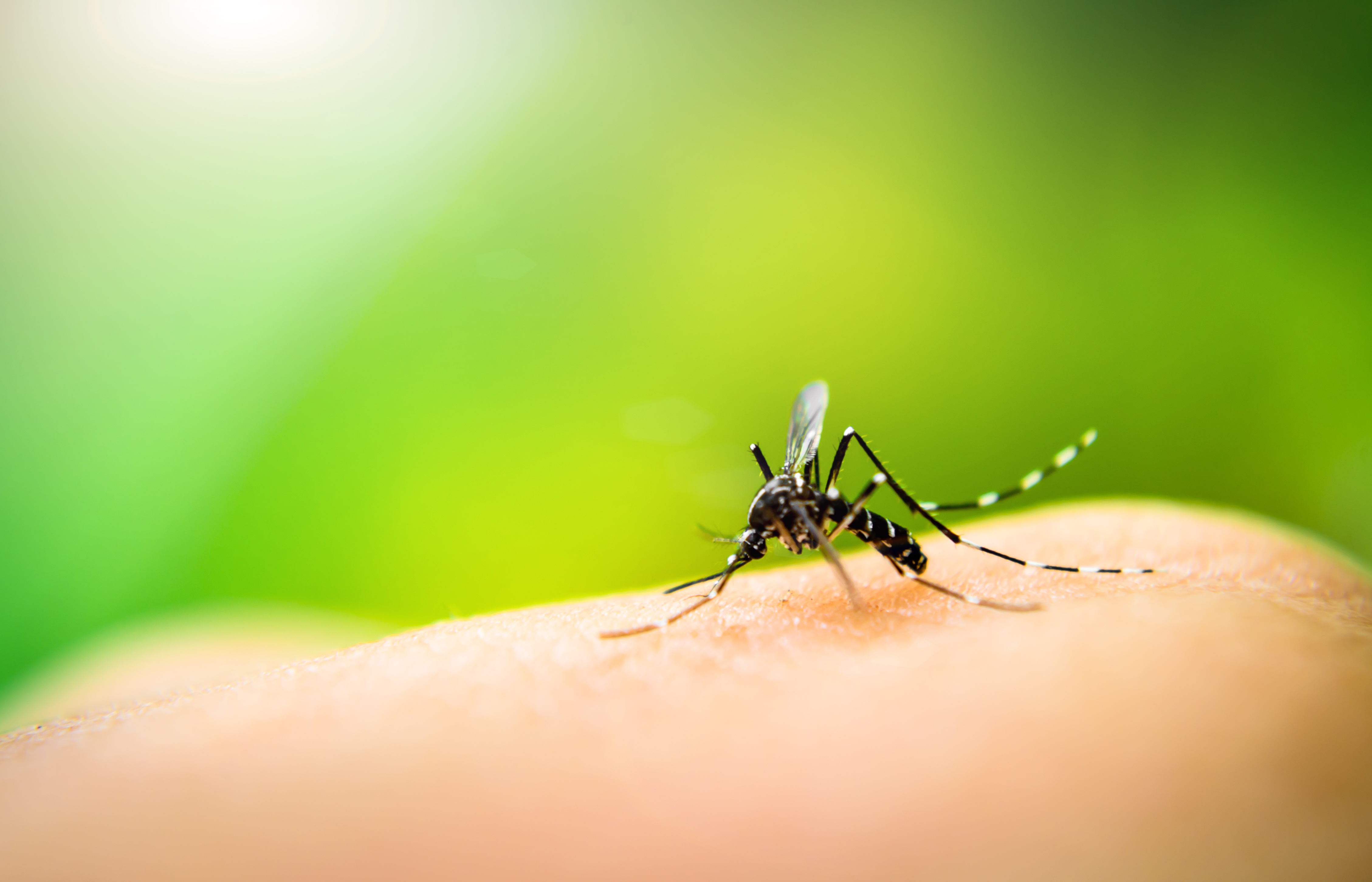Mosquito Transmitted Diseases and How to Protect Yourself

I love the summer months, but the swarm of mosquitoes that appear as the weather gets warmer concerns me. In my opinion mosquitoes are the most deadly creatures in the world. According to the World Health Organization, mosquito bites result in the deaths of more than 1 million people every year. The Zika virus is in the press a lot lately, as it is taking a foothold in the United States, but it is hardly the only risk from these small creatures.
The majority of these deaths are due to malaria. Based on the report from The World Health Organization an estimated 300 to 500 million cases of malaria occur each year — and a child dies from malaria every 30 seconds.
From experience, I can tell you that of all disease-transmitting insects, mosquitoes are the biggest menace. They spread dengue, malaria, yellow fever and even death in tropical countries. (They do not transmit the HIV virus.) As far as the United States is concerned malaria is no more a threat, however Zika virus continues to keep the spotlight on mosquitoes and diseases transmitted by them.
Unfortunately, when it comes to Zika virus – it is relatively unstudied and unknown unlike other mosquito-borne illness. Here is some information and tips on how to protect yourself from Zika and other mosquito-borne illnesses.
Do all mosquitoes spread disease?
The short answer to this question is ”no”. There are currently 200 species of mosquitoes identified in North America and over 2500 species worldwide. Mosquitoes do spread a variety of diseases but not all of them are disease transmitting ones. As a matter of fact, it is the female mosquito that bites you. Female mosquitoes need protein to make their eggs and they get their protein from us, humans and other animals.
Only in the last century did we come to know that mosquitoes are capable of transmitting disease. When a mosquito feeds on an infected host – it could be a human or an animal, it picks up the disease. The virus develops and multiplies inside the mosquito. When it feeds on another host, the disease is transmitted via its saliva. This how the virus spreads.
A note on Zika virus!
Zika virus has ruled the news headlines for a while now. Let me tell you, there are no vaccines yet for Zika virus and when infected, you can go for days without being diagnosed correctly. Although you may not die when infected with Zika virus, it is a threat to pregnant women and her unborn infant. The virus may pass through a women’s placenta and reach the unborn baby. In Brazil, there is an alarming rise in babies born with abnormally small heads and brain defects. The medical term for this condition is microcephaly.
Those infected with Zika virus won’t have symptoms or will only have mild symptoms. The most common ones are:
- Fever
- Rash
- Joint pain
- Conjunctivitis (red eyes)
Other symptoms include:
- Muscle pain
- Headache
The Center for Disease Control and Prevention has warned pregnant women not to travel unnecessarily to countries experiencing an outbreak of Zika virus, as well as Puerto Rico and parts of Miami. The governments of countries in South America, are urging women to delay any plans of pregnancy. Zika, chikungunya and dengue viruses are all currently circulating in Brazil and it is best to avoid a trip there. The worst part is Zika, dengue and Chikungunya all cause similar symptoms, this complicates clinical identification during outbreaks. Also there are no treatments or vaccines that are currently available for any of the three viruses. So this is why mosquito control and preventive steps are vital.
Luckily, the number of mosquitoes that are capable of spreading virus is relatively small, but it is advisable to take preventive measures to protect yourself.
How you can protect yourself:

At your home: Discard unused piles of papers, card boards, and unused clutters. Keep your home aerated and allow sunlight to fall inside your cupboards and shelves if that is possible. Mosquitoes breed in the dark and they hate sunlight.
Around your home: The first and foremost thing you can do to protect yourself from mosquitoes is to make your home and around the home a non-breeding environment. You can reduce the number of mosquitoes by doing minimizing and avoiding water stagnation. Close water stagnant areas, this is a chief breeding place for mosquitoes. You can reduce standing water around your home in many ways:
- Dispose of water collecting containers like tins, cans etc.
- Ceramic pots, plastic containers and recycling containers that are outdoors are no exception.
- I recommend drilling holes on the bottom of recycling containers to avoid water stagnation.
- Birdbaths look lovely, but they help the mosquitoes to breed. Change the water often.
- Clogged roof gutters are also another breeding place
- Keep your swimming pools clean and chlorinated. Keep in mind, water that collects on pool covers also aids mosquito breeding.
Yourself:
- Wear light colored long pants and sleeves.
- Wear loose fitting clothes instead of tight fits
- If you like camping or sleeping outdoors, I strongly recommend using a net.
- Campers, use a bug repellent to keep those pesky mosquitoes away. Be sure to follow the label instructions and reapply as needed. Once you are indoors, wash off repellents
- Deet is the most effective repellent, and in my opinion, worth any associated risks.
My advice, babies, young children and pregnant women need to be cautious when around a mosquito-prevalent environment. They are more susceptible to infections and often times it can get difficult to treat. But all should be wary and smart where mosquitoes are likely to roam.
Leave a Comment
You must be logged in to post a comment.



0 Comments